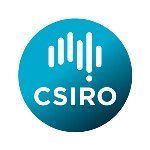
- This event has passed.
14th April – BioBreakfast – Scaling-up for success: Production, and manufacturing for commercial product development
April 14, 2016 @ 7:30 am - 9:00 am AEST
Event Navigation

Melbourne has a rich innovation ecosystem and one of the identified gaps is moving research out of the lab and into commercial product development. One of the barriers is around the ability to scale-up new biotech and medtech opportunities from lab-based prototype to clinically-ready product. The answer can be found in collaboration, and this event will highlight the capabilities and partnerships at the Biomedical Materials Translational Facility, led by Monash Univeristy and CSIRO at their joint Clayton precinct.
Who should attend? Companies with an interest in the production of polymers, proteins, antibodies, biologics, biocompatible materials, clean room materials synthesis, fabrication and surface coating, high throughput biological testing and evaluation of materials, animal models and real-time non-invasive imaging for pre-clinical studies. Perfect for CEOs, MDs, Chief Scientific Officers, manufacturers, engineers, designers and quality teams.
Come along and catch up with everything that’s happening at the CSIRO precinct and learn more about the opportunities to connect, collaborate and prosper.
When:
Thursday, 14th April
7:30am – Breakfast
8:00am till 9:15am – Presentation
Speakers:
- Dr Mark Bown, Principal Research Scientist, CSIRO
- Professor Magdalena Plebanski, Head of Vaccines and Infectious Diseases Laboratory
Immunology/Medicine, Department of Immunology
Monash University - Zoran Manev, Boron Molecular
Price:
Members – $65
Non-Members – $110
(Prices include GST)
Where:
CSIRO
Bayview Avenue, Clayton
(Ian Wark Building @ Central Reception)
Click here to see if your organisation is a member
Cancellation Policy
Full refund given up to 7 days prior to the event.
No refunds within 7 days of the event.
Speaker Bios
Dr Mark Bown (BSc, ARCS, PhD, CChem) is an inorganic chemist and Team leader in CSIRO Manufacturing, Clayton. He has worked for CSIRO since 1998 and has been involved in product security, organic electronics, and the development of polymeric biomedical materials.
He is currently project leader of the CSIRO component of BMTF in Clayton.
Professor Magdalena Plebanski
Professor Magdalena Plebanski (BScHon, MA, MBA, PhD) is an internationally recognized leader in Immunology, NHMRC Senior Research Fellow, and directs the Vaccines and Infectious Diseases Unit at the Department of Immunology and Pathology, Monash University, Australia. She is also the inaugural co-Head of the Therapeutics Division at the newly established Monash Institute of Medical Engineering (MIME), leveraging exciting interdisciplinary collaborations with Monash engineers (Prof. Selomulya, Prof. Suzuki and A/Prof. Neild) and clinicians (Prof. O’Hehir, Prof. Wei, A/Prof, Flanagan) to develop new approaches to promote human health. Prof. Plebanski’s primary interest is to develop practical and affordable vaccines against complex diseases, specifically malaria and cancer, and to this end she pioneered the use of synthetic size-defined non-inflammatory nanoparticles. Her nanoparticle studies also opened to door to new nanotechnology applications to prevent allergic airways disease. She has 130 peer-reviewed publications (plus books and abstracts), including field changing findings on vaccines, and on mechanisms used by parasites and cancer cells that can interfere with vaccine efficacy, including papers in the top world-class journals, Nature Biotechnology, Lancet, Science, Nature, Immunity, Nature Medicine, Plos Pathogens, Nature Communications to name a few. She has 100 patents in 14 patent families and has successfully progressed findings into human trials and commercialization in diverse roles as CSO, CEO and Director in successful biotechnology companies nationally and internationally. Her current interests further involve the optimised application of vaccines and chemotherapy to vulnerable populations such as the elderly, as well as to patients with cancer.
Zoran Manev, Boron Molecular
Zoran Mandev is the Managing Director of Boron Molecular. Boron Molecular is a fine chemical manufacturer originally spun out of the CSIRO in 2001.
Boron Molecular signed a master service agreement with the CSIRO for the development and commercialisation of RAFT agents of RAFT agents used in the coatings, healthcare and biomedical applications.




